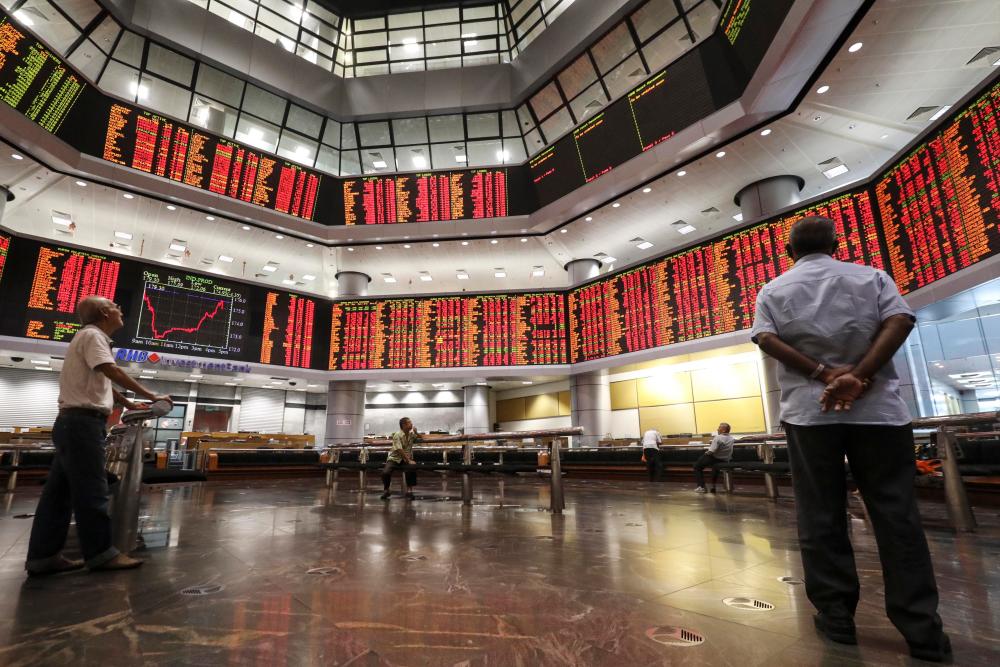PETALING JAYA: The Malaysian economy is well diversified, making it resilient enough to avoid a financial crisis such as that which has hit Sri Lanka, said economists.
They were commenting on fears expressed on social media about Malaysia going down the same path as the South Asian island nation, that was teetering on the edge of financial collapse before its government recently announced that it was suspending repayments on all external debts.
Universiti Utara Malaysia professor of economics Prof Dr K. Kuperan Viswanathan said Malaysia’s well-diversified economy is able to shield the country from such turmoil.
He pointed out that the economy is not reliant on one main product, with natural resources, commodities, services, foreign investment, tourism and other sources contributing to it.
“The main problem with Sri Lanka was that 80% of its economy relied on tourism. When the Covid-19 pandemic hit, the country lost its major source of income,” he told theSun yesterday.
“This is very unlikely to happen to Malaysia, but we have to be careful with our borrowing by keeping it below 70% of gross domestic product. However, if the country goes above the limit, there might be some problems.”
Kuperan said to get the economy to greater heights, the government needs to stop short-term economic decisions.
He added that a major difference between Malaysia and Sri Lanka was that there was very little upheaval here as the people do not take to the streets to protest, therefore the economy does not suffer.
“The national reserves are still high, the economy is strong and the currency is stable. The ringgit has remained in the same bandwidth against the US dollar, euro, Sterling and the Singapore dollar.”
Kuperan called for focus on social cohesion to enable the economy to grow further, adding that people may have taken to social media to compare Malaysia with Sri Lanka because of concerns over social cohesion.
“They may be worried because the economy could be affected,” he said on a social media discussion on the matter.
“There is a growing racial and religious divide, that the government needs to tackle. There are those who see economic issues through the lens of race and religion, although the issues may have nothing to do with that.”
Iskandar Puteri MP Lim Kit Siang said Malaysians must ensure the country does not end up like Sri Lanka, that he said “took a wrong turn” on nation-building policies and is now on the verge of becoming a failed state.
“Sri Lanka has defaulted on foreign debts for the first time. The people are facing crippling power cuts and scarcity of food, fuel and essential items,” said the veteran DAP leader who recently quit active politics.
Universiti Tun Abdul Razak economist Prof Emeritus Dr Barjoyai Bardai agreed that Malaysia would not end up like Sri Lanka.
“Malaysia’s economy is doing well. Government borrowings might be high, but it is still manageable,” he said.
“About 80% of borrowings are funded internally from organisations such the EPF (Employees Provident Fund), LTAT (Armed Forces Fund Board) and other institutions.
“It is a win-win situation as these institutions need fixed income and the government pays them interest.”
Barjoyai singled out social cohesion as the biggest challenge facing the country that could hurt the economy.
He added that while the government has policies aimed at helping the B40 economically via subsidies, there is a need to look at “how big” the poor have grown.
“The long-term plan of providing subsidies is untenable. The government cannot continue giving fish to the B40. It must provide them with fishing rods.
“More than 6.5 million households received government help during the pandemic. This is unsustainable,” he said, while urging the government to come up with long-term plans to help the economy grow while assisting the poor.














